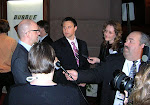At least one Ohio lawmaker would like to make it illegal for broadcasters to play 9-1-1 tapes for the public. If he gets his way, doing so would result in a $10,000 fine.
Last time around, this bill went nowhere. But, it raises some interesting questions for me as a journalist and broadcaster.
First, passing such a bill would result in yet another exemption to the state’s sunshine laws, which are designed to provide transparency in government. In my book that’s a huge black mark for any legislative measure. However, as much as I love the sunshine laws, I have bigger problems with this particular proposal.
It has been my experience that most of the time when we play a 9-1-1 recording it happens at the request of law enforcement. Rarely is a tape requested for our own investigative reporting purposes. When we play these recordings, we are attempting to assist our local authorities in the execution of their jobs. It’s a service we provide to the public and integral to fulfilling our important role in the system of distributing information.
Here’s a case in point: At WMOA and WJAW, we recently played a series of 9-1-1 tapes at the request of law enforcement. The recordings were provided to members of the press without a formal request for the purpose of broadcasting to enlist the public’s assistance in the identification of a suspect. These particular recordings involved a series of fake bomb threats called in about our two local hospitals, Marietta College and Wal-Mart.
It’s the only time this year that we have used any 9-1-1 recordings for broadcasting purposes.
What would it accomplish to prohibit this kind of reporting? Who would be served by refusing access to the recordings themselves?
I can’t say for certain what is driving this legislation, but it makes me wonder how much certain legislators understand about the necessarily cooperative relationship between media and law enforcement.
Friday, April 17, 2009
Wednesday, April 15, 2009
Politics and Tea Parties in the Eyes of a 9-year-old
Sometimes the funniest insights come from my kids.
This evening the little munchkins and I had the pleasure of attending the Marietta Tax Day Tea Party in Muskingum Park.
As we walked away from this living history lesson, the girls were naturally comparing the event to the Boston Tea Party when Kaitlynne popped off with one of her amusing observations.
“Mom, if they dumped a bunch of stuff in the river now you wouldn’t think it was so cool,” she cleverly remarked.
She then proceeded to explain how I would report them to the authorities and write about it in the news!
This evening the little munchkins and I had the pleasure of attending the Marietta Tax Day Tea Party in Muskingum Park.
As we walked away from this living history lesson, the girls were naturally comparing the event to the Boston Tea Party when Kaitlynne popped off with one of her amusing observations.
“Mom, if they dumped a bunch of stuff in the river now you wouldn’t think it was so cool,” she cleverly remarked.
She then proceeded to explain how I would report them to the authorities and write about it in the news!
Friday, April 3, 2009
Sometimes even I find the news shocking . . . .
There has been so much developing news on the C8 front lately. But, I have to admit that even I was shocked to learn that as recently as last year DuPont was still spilling large quantities of the controversial perfluorochemical into the Ohio River.
This information was not apparent from the administrative consent order drafted by WVDEP and agreed to by the company. Rather, we had to request the detail in order to find out that among the ten spills DuPont will pay $1.6 million in fines to resolve with the state, at least three were related to large quantities of C8 going into the river within the past three years.
Fortunately for Little Hocking and Lubeck consumers, their water is being filtered by means of a special system constructed by the company specifically for the purpose of reducing PFOA. However, Parkersburg and Vienna do not test frequently for the presence of C8 in their drinking water. So, I suspect that any potential spikes or surges brought on by these spills went undetected.
This makes it even more important that local consumers heed the advice of the ATSDR. Vulnerable populations – particularly the elderly, pregnant women and babies – need to be protected by reducing exposure as much as possible. Infant formula should not be mixed with local tap water. Pre-mixed formula is substantially more expensive, but there are alternatives not mentioned in the ATSDR guidance like bottled water or nursery water.
While it’s still too soon to know exactly what human health effects may result from exposure, there is good reason to be concerned about developmental effects, subtle changes in body chemistry, and weakening of immune responses.
This information was not apparent from the administrative consent order drafted by WVDEP and agreed to by the company. Rather, we had to request the detail in order to find out that among the ten spills DuPont will pay $1.6 million in fines to resolve with the state, at least three were related to large quantities of C8 going into the river within the past three years.
Fortunately for Little Hocking and Lubeck consumers, their water is being filtered by means of a special system constructed by the company specifically for the purpose of reducing PFOA. However, Parkersburg and Vienna do not test frequently for the presence of C8 in their drinking water. So, I suspect that any potential spikes or surges brought on by these spills went undetected.
This makes it even more important that local consumers heed the advice of the ATSDR. Vulnerable populations – particularly the elderly, pregnant women and babies – need to be protected by reducing exposure as much as possible. Infant formula should not be mixed with local tap water. Pre-mixed formula is substantially more expensive, but there are alternatives not mentioned in the ATSDR guidance like bottled water or nursery water.
While it’s still too soon to know exactly what human health effects may result from exposure, there is good reason to be concerned about developmental effects, subtle changes in body chemistry, and weakening of immune responses.
Subscribe to:
Posts (Atom)


